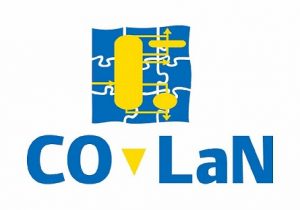
A meeting for developers more than for end-users
Demographics show that more than three out of four survey takers are developers with also a large participation of software vendors. This may not reflect the real demographics of the actual attendees so some bias may be present when analyzing the answers as it is done below.
Based on the questionnaires received, the CAPE-OPEN 2020 Annual Meeting seems more attractive to developers than to end-users.
About reasons to attend and their satisfaction
Survey takers are clearly disatisfied by the treatment given to the “Resolve implementation / specification issues” aspect at the meeting (satisfaction rating is at 2.4), with “Understanding user needs” also showing a lower satisfaction (satisfaction rating 3.4) compared to other reasons for enjoying the meeting. The other reasons for coming fare rather well against the expectations that survey takers had: “Assess development of CAPE-OPEN standard” is the best rated at 4.3 and “Assess what other developers are doing with CAPE-OPEN” comes second at 4.2 while “Assess CO-LaN’s projects (COBIA, test suite)” comes third at 4.1.
An additional reason for attending is expressed as the interaction with other developers and/or CO-LaN Members. Clearly this interaction was almost nil with the imposed format.
Virtual or non-virtual format
Two out of three survey takers are in favor of the virtual format given this year, some because it was the only way to make the meeting happen. Statements in favor of the format used in 2020 are “Overall, I found it useful and convenient that it was virtual, since otherwise I could not have been able to justify attending” or “Keep holding the meeting remotely” while “Need person to person interaction / More personal interaction” is understandably on the other side of the spectrum.
One of the challenges for CO-LaN in 2021 will be to satisfy two different communities of attendees. Still having the presentations recorded is seen favorably (“it is nice to have recorded presentations“) while having “screen presentations in advance” was also asked. Unfortunately CO-LaN gathered the presentations just the days before the meeting (or even on the day of the meeting). But it is usual with CAPE-OPEN Annual Meetings! It adds to the fun (well the stress) for the organizers.
Software engineering versus applications
On the topics addressed, a stronger focus on applications and less on software engineering is supported by only one-third of the survey takers. This seems consistent with the fact that three out of four survey takers define themselves as developers. At the same time only 20% of the survey takers ask for more software engineering topics, apparently meaning that the importance given to software engineering is sufficient. May be the comment “It was a good balance this year” is shared by most attendees. Still we heard the need for ” more cool stuff like hard core examples with live debugging sessions“. A challenge indeed!
Length of the meeting
No one wants a shorter event, one-third of the survey takers want a longer event.
CO-LaN usually spreads its Annual Meetings over two days. In 2020, since it was a virtual meeting and to encourage participation from people outside of Europe, it was decided to organize the conference only during the afternoons (Central European Summer Time). These were CO-LaN’s constraints, leading to the understandable comment “This year it was short, the normal 2 day event is fine“. A longer event means more presentations, which are always a challenge to find, but also more discussions could take place.
Announcement and marketing
More than two thirds of the survey takers consider that the meeting has been announced sufficiently in advance. “More marketing for the event to attract more participants” is a comment received. CO-LaN would welcome help from software vendors to reach out to their clients about CAPE-OPEN Annual Meetings.
COBIA
COBIA is well received with an unanimous response that COBIA offers benefits over Microsoft COM for CAPE-OPEN developments. Definitive statements like “COM is a horribly complex and terse technology. A move away from COM is good. Confer OPC-move from COM to separate stack specification, which has improved adoption and usage across many platforms” were used to describe the advantages of COBIA over COM. More than two thirds of the survey takers are considering using COBIA.
Regarding the choice of language bindings within COBIA Phase 3. Python comes clearly first with FORTRAN coming second but C is almost at the same level as FORTRAN. Since FORTRAN and C are related in the development approach, it does not make a conflict. If considering C and FORTRAN as the same development then it is at the same level as Python.
CO-LaN thanks all for providing this input to the scoping of COBIA Phase 3.
Numerical Special Interest Group
Only three among the survey takers would be ready to enter a Numerical Special Interest Group. Many thanks to the people willing to invest time in a Numerical SIG. It is a start.
Conclusion
All in all, at least for the attendees who evaluated the meeting, it was a good conference. It is nice that none of the survey takers mentioned the technical issues faced during the meeting. In the future it could be necessary to mix virtual and non-virtual formats. That was done, on a small scale, at previous CAPE-OPEN Annual Meetings, with mixed results from an audio point of view. Consider already joining us for the CAPE-OPEN 2021 Annual Meeting!
.
